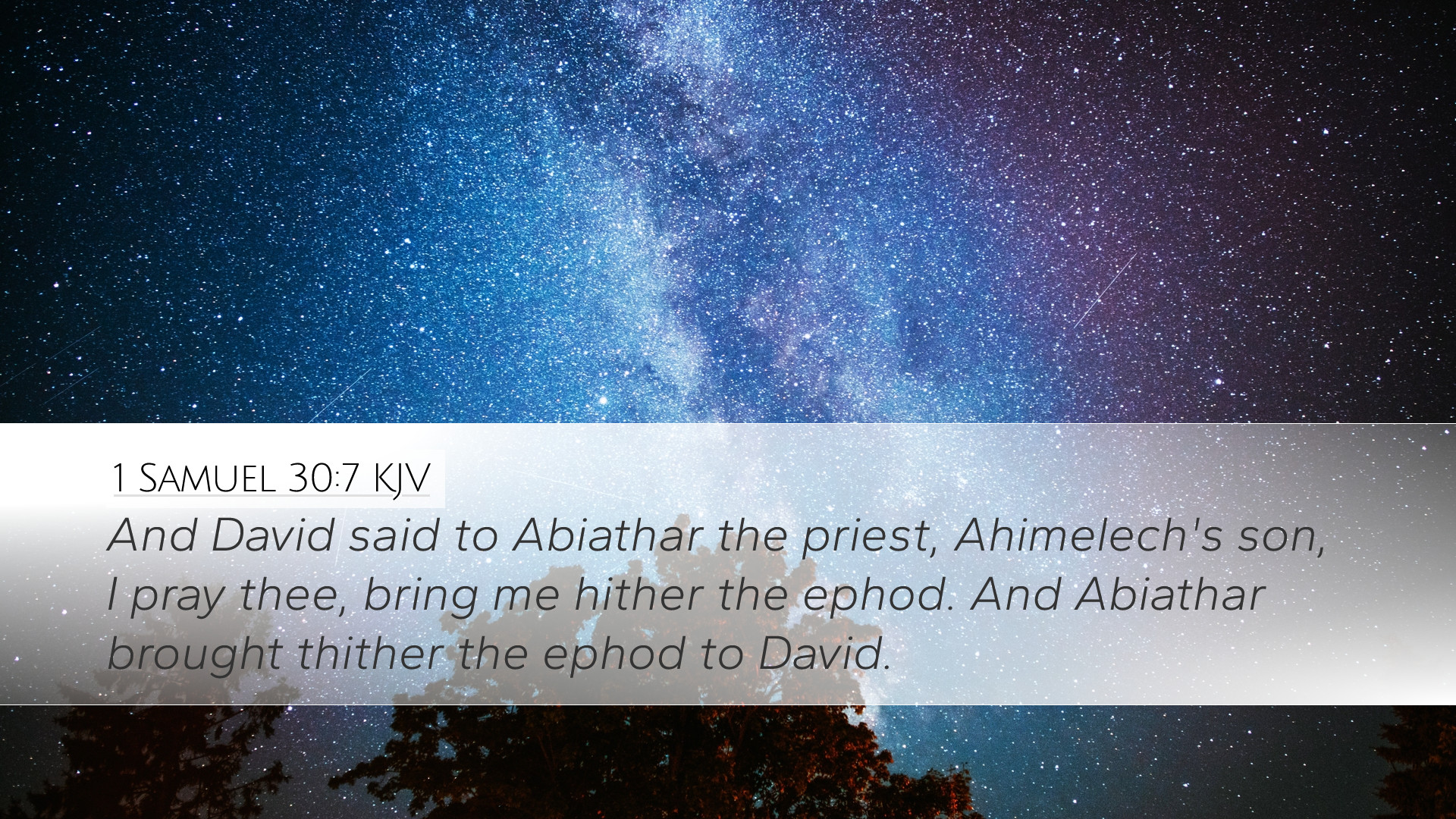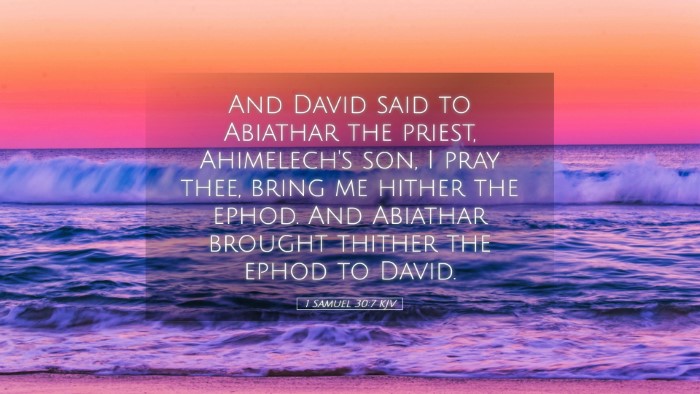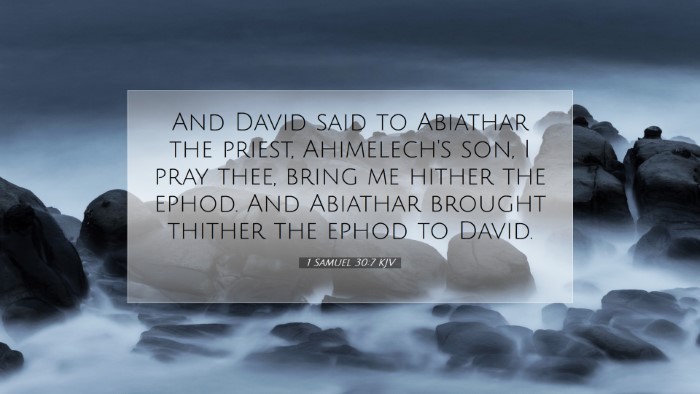Commentary on 1 Samuel 30:7
Verse: "And David said to Abiathar the priest, Ahimelech's son, I pray thee, bring me hither the ephod. And Abiathar brought thither the ephod to David." (1 Samuel 30:7)
Introduction
This pivotal verse in the narrative of David's life illustrates a moment of deep reliance on God during a time of despair. The context reveals David's return to Ziklag, only to find it burned and his family taken captive by the Amalekites. It is in this dire situation that David seeks divine guidance, showcasing the importance of prayer and seeking God's will in difficult circumstances.
Contextual Analysis
David, having had to flee from Saul and now dealing with the Calebites’ betrayal, finds that even in this refuge, sadness and distress await him. His reliance on God culminates in his request for the ephod—a priestly garment indicative of seeking divine counsel.
- Historical Context: The Amalekite raid on Ziklag punctuates the theme of loss and the vulnerability of David and his men, contrasting their prior triumphs.
- The Significance of the Ephod: The ephod, worn by priests, was used in seeking the Lord's guidance, illustrating the gravity of the situation and David's desire for direct instruction from God.
Commentator Insights
Matthew Henry
Henry emphasizes David's steadfastness in seeking God amidst turmoil. He notes that resorting to God in distress is both wise and necessary for believers. The act of calling for Abiathar and the ephod illustrates David's understanding that human strength is inadequate in the face of overwhelming odds.
Albert Barnes
Barnes provides insight into the significance of the ephod in decision-making and prayer. He interprets David's actions as a testament to his relationship with God, signifying a profound understanding of the need for divine assistance. By approaching Abiathar, he acknowledges the priesthood's role in mediating God's will.
Adam Clarke
Clarke remarks on the necessity of spiritual leaders in guiding believers through challenges. He highlights David's actions as a return to faith during a crisis, serving as an example for believers on how to approach God for direction, especially when faced with adversity.
Theological Implications
This verse invites deeper theological reflection on the role of prayer and reliance on God. David's call for the ephod serves as an example that God is both accessible and willing to guide those who seek Him genuinely:
- Prayer as a Weapon: The necessity of prayer in overcoming fears is evident. David shows that prayer is not just a last resort but a foundational response to crises.
- Divine Guidance: The ephod symbolizes the need for God's guidance in decision-making. David's longing for wisdom from God models a proactive faith.
Practical Applications
For pastors, students, and scholars, this verse provides several key takeaways:
- Encouragement in Adversity: The assurance that God’s guidance is available can uplift believers facing trials and uncertainties.
- Prioritizing Prayer: Emphasizing the need for prayer in decision-making fosters a culture of seeking God's will within congregations.
- Understanding Leadership: Leaders are encouraged to model dependency on God, showing their congregants the importance of seeking divine direction.
Conclusion
1 Samuel 30:7 serves as a profound reminder of the believer’s need for God's guidance, particularly in distressing times. The exemplary nature of David's actions—turning to God through the priestly ephod—provides a model for reliance on divine wisdom over human understanding. This verse not only narrates a historical event but also invites contemporary readers to cultivate a spiritual life marked by earnest prayer and seeking God’s will.


